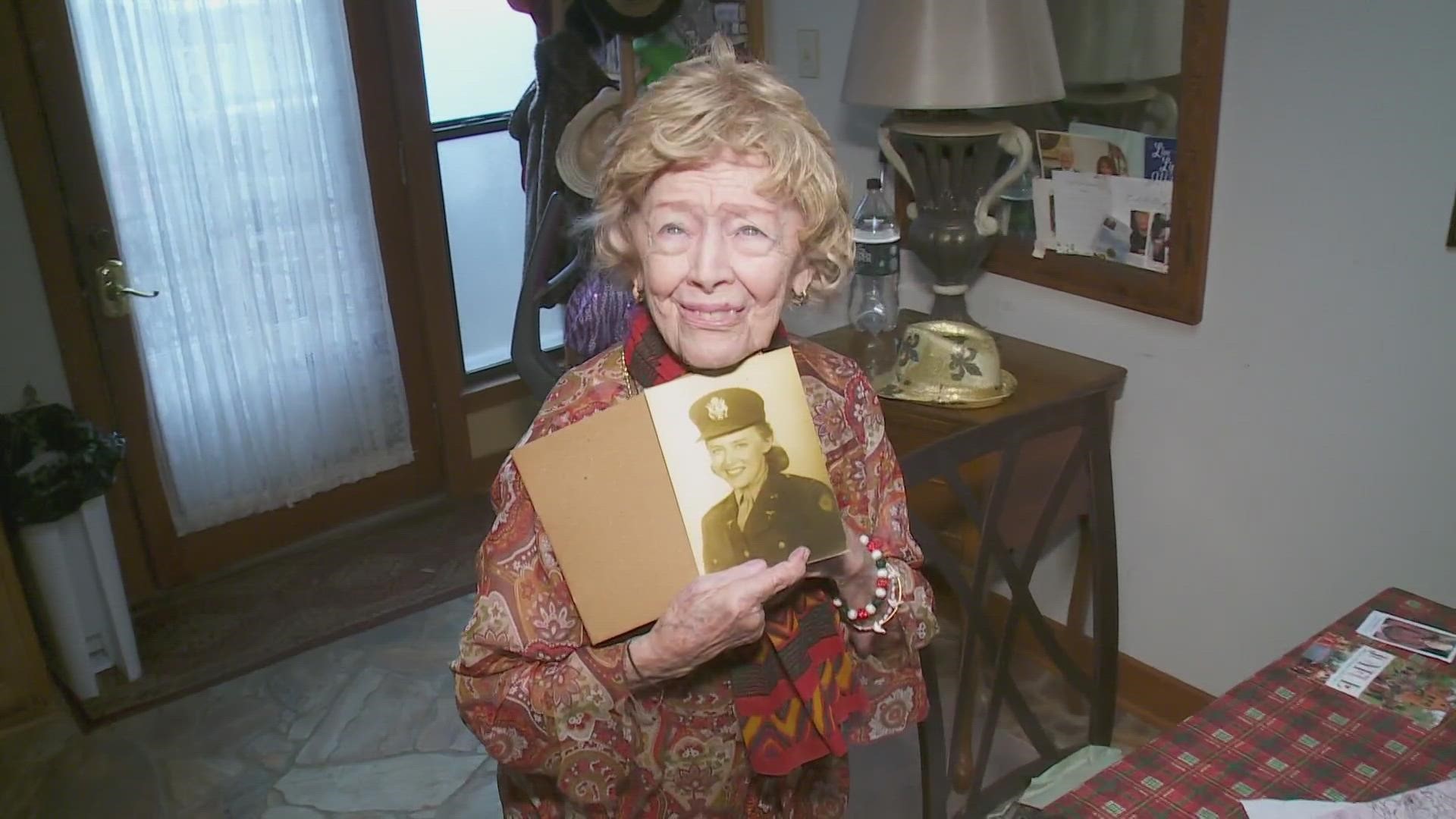NEW ORLEANS — There are almost 90,000 people in the U.S. who are 100 or older.
Most of them, 85%, are women.
So, what is getting them to that age?
One local family just made it into the Guinness Book of World Records, and is among those in a national anti-aging study.
Louise Post Ritter will be 102 in July. She served as a registered nurse in Germany during World War II. She plays competitive, virtual bridge against people around the world. She also teaches bridge classes at local centers.
“I learned it so young. I was 13, or 14 and I had an aunt that played bridge, and if somebody didn't showed up, she'd ask me to fill in,” Ritter said.
She says she has no joint pain, is on no medications for physical ailments, goes to mass every day, and drives herself, by the way.
“I buy my own groceries, pay my own bills,” she added.
Her entire life she was active, and ate fresh veggies from her country garden.
She eats lean foods, but loves soups, chocolate, ice cream, and bar-be-que sauce, but there are no other fats and no snacking.
She comes from a family that owned wineries in Arkansas. Her grandmother, who had 15 children to support, went to jail during prohibition for bootlegging. So, she warns, don't you dare take away her 8 p.m. nightcap.
“I got to have my glass of wine before I go to bed. I really prefer the red, but they give me a headache. So, I stick with the white. Chardonnay mostly,” said Ritter
So, you get the picture of this centenarian, but Louise’s exceptional lifestyle for her age isn't the only reason one of the foremost U.S. doctors studying longevity, Dr. Thomas Perls, has come to New Orleans from the Boston University School of Medicine.
“It started when I was an orderly, age 16, working in a nursing home and falling in love with old people,” said Dr. Thomas Perls, a Professor of Medicine at Boston University School of Medicine. His specialty is Internal Medicine and Geriatrics.
That was the beginning of what influenced him to start a study in 1995, looking into why certain people live beyond 100. Louise is in that study, but what makes her even more interesting in understanding aging is most of her family.
Her siblings, her mom, are, or were centenarians too. In fact, she and her siblings were just in the Guinness Book of World Records for having the oldest combined age among seven siblings. It is 689 years when added together.
“I'm kind of flattered about it, but you know what, I don't feel, I feel like it's pretty natural for me to be this way. I don't feel it's anything different about me,” she said.
“By being so alike, we think they may have some things in common biologically that get them there,” Dr. Perls said.
Dr. Perls has more than half of the 4,200 centenarians he hopes to enroll in his New England Centenarian Study, along with nearly 700 of their senior-aged children.
He introduced his findings so far, along with Louise and her daughter, 72-year-old Karen Ritter Burlet, to doctors and students at Tulane Medical School.
Here are some key points emerging:
Having children late in age is a marker of longevity, because their reproductive system is aging slowly.
The time they spend sick at the end of life is short. They're still living independently into their mid-90s.
Social networks are important, so is resilience to major life changes. They stimulate their brains, tend to be more optimistic, and are not narcissistic.
Genetics plays an important role in being a supercentenarian from 105 -110, but getting to 100, it's more environment or the lifestyle you choose that’s playing an important role.
Centenarians seem to have the same genes that put them at risk for the same illnesses the rest of us get with aging, but they appear to have something extra.
“The trick that we think they have is that they also have protective genes, genes that slow down the rate of aging. By aging more slowly, they also have a decreased risk for aging-related diseases like Alzheimer’s, heart disease, stroke, diabetes, and cancer as well,” explained Dr. Perls.
A map he has illustrates that living a shorter life is more concentrated among people living in the south. So, health behaviors matter.
Other studies show that those who don't overeat, are lean, with a more plant-based diet, rather than meat, with lower stress levels, who don't smoke or drink alcohol, but exercise, get adequate sleep and better manage stress, live almost 10 years longer. Still, living longer comes with a major difficulty.
“We just lost my brother suddenly at Christmastime, and of course that shocked us all. It was horrible. Still horrifying, but she worked through that,” Ritter’s daughter Karen Ritter Burlet, explained.
One of Louise’s eight children told his mom this.
‘“Mama you pulled the elderly gene. You pulled the old gene. So, what's going to happen with that is you're going to watch other people die.’ And it's sad,” Burlet remembers.
She has lost three children and lots of friends, but Louise's faith is what pulls her through. And her study results will leave a lasting mark for the rest of us. No, we can't pick our parents for better genes, but we can pick some of Louise's life's lessons.
Life Expectancy Calculator:
Enroll in the study:
► Get breaking news from your neighborhood delivered directly to you by downloading the new FREE WWL-TV News app now in the IOS App Store or Google Play.

